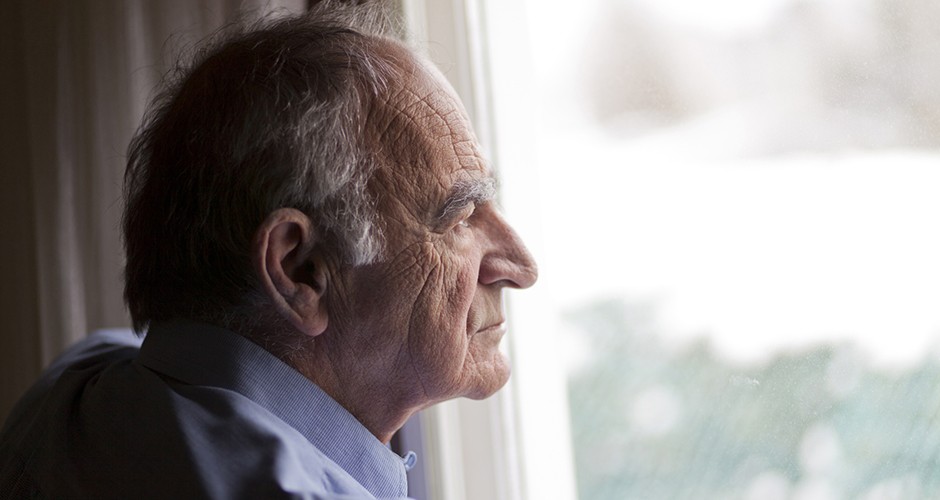Seniors commonly talk about the end of life. They may speak of dying or longing to go to heaven. This doesn’t have to be cause for alarm.
It’s important to recognize the difference between sadness, reflection on one’s life and suicidal thoughts.
Amanda Roberts, a Sanford Health internal medicine nurse practitioner specializing in geriatric medicine, explains the risks seniors face and how family members and caregivers can help prevent suicide.
Why might seniors be more at risk for suicide?
A combination of mental, physical and social factors may put older adults at risk.
- Depression: Older adults often face increased rates of depression, which can be triggered by feelings of loneliness, isolation, loss of loved ones and life changes related to aging. Alcohol or medication misuse can exacerbate feelings of depression and loneliness.
- Illness: Many seniors suffer from chronic illnesses, physical pain or disabilities. These conditions can reduce their quality of life and lead to feelings of hopelessness.
- Loss: As people age, they often experience the loss of friends, spouses, partners and family members. Retirement can also lead to a reduced social network and loss of income, leaving many seniors feeling isolated, lonely and struggling with finances. Additionally, the loss of physical or cognitive abilities can lead to feelings of helplessness.
What is the difference between a senior talking about dying versus them considering suicide?
The difference is in the intention, emotional tone and context of the conversation.
When seniors reflect on their own mortality, religious or spiritual beliefs, or end-of-life planning, discussions may be calm, thoughtful or even accepting. They may be coming to terms with aging, health decline or the inevitable reality of death. They might discuss what they hope for in terms of their legacy or how they want to be remembered. Conversations may revolve around practical matters like living wills, funeral plans or advance directives.
When seniors are considering suicide, the conversation is often more focused on emotional pain, hopelessness and a desire to escape suffering. They may express feelings of being a burden or lacking purpose. The tone may be more distressing, urgent or hopeless. The person might express feelings of worthlessness, loneliness or deep sadness, often without seeing a way forward.
Does it mean a senior is considering suicide if they prepare their will or give items away?
It does not automatically mean a senior is considering suicide, but these actions can be warning signs when combined with other indicators of emotional distress or suicidal intent.
Many seniors create or update their wills as part of responsible end-of-life planning. If creating a will is accompanied by sudden changes in mood, expressions of hopelessness or other concerning behaviors, it could indicate that the person is contemplating suicide.
Seniors sometimes give away items as part of decluttering or downsizing. They may also want to pass on sentimental items to loved ones. When a senior starts giving away prized or sentimental possessions suddenly or without a clear reason, particularly if it is accompanied by comments about not needing things anymore, it can be a warning sign.
What can family members do to prevent suicide?
Family members play a crucial role in helping to prevent suicide in seniors. By offering emotional support, maintaining regular contact and addressing risk factors, they can make a significant difference in a loved one’s well-being.
If you believe a loved one is suicidal, you must take action:
- Call 911 if there is an immediate emergency.
- Do not leave the person alone.
- Get help from professionals who specialize in crisis intervention and suicide prevention. See the resources at the end of this article.
What can caregivers do to prevent suicide?
Caregivers, whether professional or family members, play a vital role in preventing suicide among seniors. They are often in close, regular contact with the senior, making them well-positioned to notice early warning signs and take proactive steps to offer support.
Caregivers should:
- Create safe spaces for seniors to talk about their emotions, struggles and concerns.
- Stay alert to signs of depression, anxiety or withdrawal, including sudden changes in behavior, neglect of personal hygiene or loss of interest in activities.
- Help them maintain social connections with family, friends or through groups and activities.
- Ensure appropriate medical treatment for chronic conditions and pain management.
- Encourage hobbies or activities that provide a sense of accomplishment and purpose.
- Celebrate past contributions to family or society to show they are valued.
- Oversee medications to ensure they are taken correctly and to prevent stockpiling.
- Ensure firearms are properly locked away.
What suicide prevention resources are available?
Free, confidential and immediate support for mental health crises, suicidal thoughts or emotional distress is available for seniors, families and caregivers.
- Suicide & Crisis Lifeline: Call or text 988
- National Suicide Prevention Lifeline: (800) 273-8255, TTY: (800) 799-4889
- Veterans Crisis Line: (800) 273-8255 or text 838255
- Institute on Aging’s Friendship Line (for anyone 60+): (800) 971-0016
- Crisis Text Line: Text 741741




